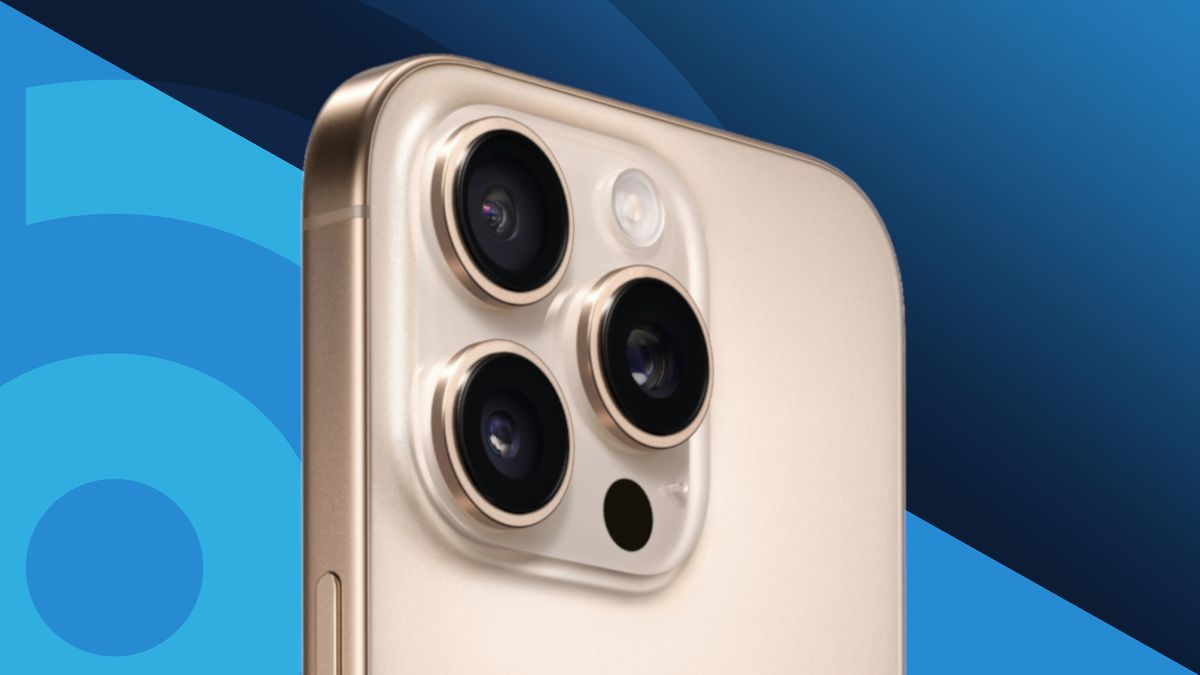
We're expecting Samsung to release the Galaxy S25 series at some point in January this year. As such, we'll likely be replacing the Galaxy S24 Ultra with the inevitably even better newer model in the coming weeks.
The best phones aren't simply the most expensive devices on the market. We've reviewed well over 1,000 handsets (over 50 last year alone), and have been reviewing phones since 2005, so we know that money doesn't always buy quality.
To help you make sense of the current mobile landscape, we've compiled this list of the best phones available in the UK. Right now, the iPhone 16 Pro Max is the best iPhone money can buy, but it doesn't necessarily offer the best value for money. The iPhone 15, meanwhile, is a better option for budget-conscious buyers, while the Google Pixel 8a is a great-value option for Android fans.
Below, you'll find specs for each model, along with pros, cons, and links to their full reviews. Our picks cover a range of prices, so whether you're on a tight budget or have a bottomless supply of cash, you'll find a great phone that fits your particular requirements. We've based our ranking on extensive real-world testing, so you can rest assured that our judgment is sound.
Quick list
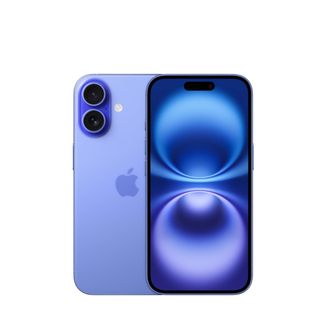
Thanks to its superfast A18 chipset, 48MP main camera, AI feature compatibility, and relatively accessible price, the iPhone 16 is, for us, the best all-round phone on the market right now.
Read more below
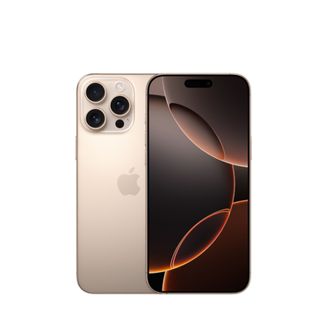
The iPhone 16 Pro Max is, quite simply, the biggest and best iPhone money can buy. With its A18 Pro chipset, 6.9-inch OLED display, and suite of pro-grade cameras, Apple's latest flagship is a truly formidable handset.
Read more below
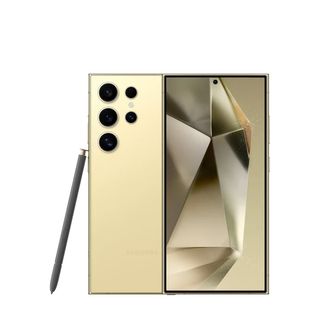
Samsung's latest Ultra phone is a feature-packed behemoth. It's got a titanium design and a 50MP telephoto camera with 5x zoom, but crucially, it's also got a whole range of AI capabilities that make it supremely versatile.
Read more below
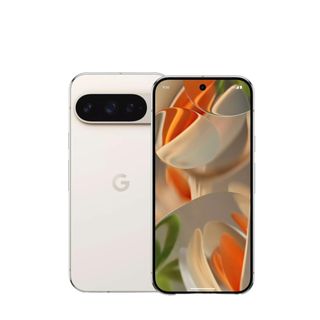
Boasting the best Pixel design, cameras, and software to date, the Google Pixel 9 Pro is a premium powerhouse. Its chipset, however, can't keep up with the flagship competition.
Read more below
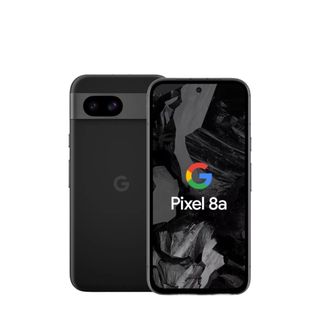
The Google Pixel 8a is the most accessible route into today's AI-fueled smartphone world, offering a decent chipset and stellar longevity to boot.
Read more below
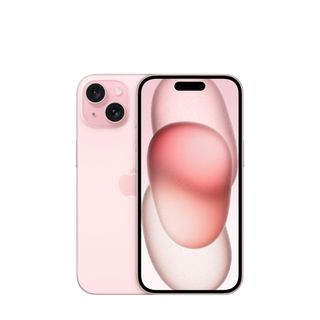
Despite its lack of AI features, the iPhone 15 offers a whole lot of phone for not a lot of money. With its slick chipset, premium-looking design, and Dynamic Island cut-out, Apple's 2023 base model continues to impress in 2025.
Read more below
Load the next product...
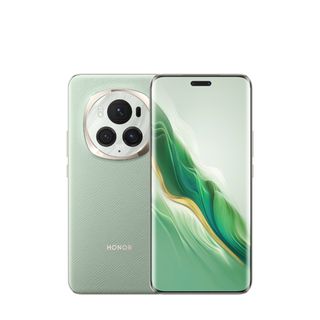
Thanks to its best-in-class display and versatile cameras, the Honor Magic 6 Pro is an excellent flagship option for those prefer to stand out from the crowd.
Read more below
For
- Small size and low weight for a full-frame camera
- Handy vari-angle screen
- Decent ISO performance
Against
- Small viewfinder
- Ergonomics could be better
- Expensive compared to the Sony A7 IV
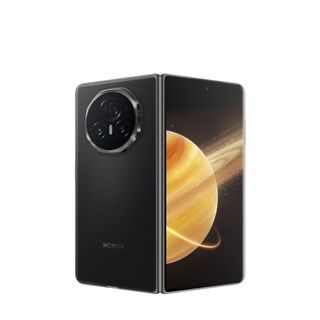
If you're interested in foldable phones, you likely value great design. The Honor Magic V3 is the most impressively designed foldable released so far, and a worthy rival to the OnePlus Open.
Read more below
For
- Small size and low weight for a full-frame camera
- Handy vari-angle screen
- Decent ISO performance
Against
- Small viewfinder
- Ergonomics could be better
- Expensive compared to the Sony A7 IV

I'm TechRadar's Phones Editor, and have been reviewing and writing about the best mobile devices for several years. Based in the UK, I handle news and feature coverage for the phones section of the site, and regularly edit TechRadar's phones-related reviews and buying guides. You'll find my byline on over 1,500 TechRadar articles.
The best phone in 2025
Why you can trust TechRadar
Below, you'll find full write-ups for each of the best phones in our list, along with links to their reviews.
The best phone for most people




Specifications
Reasons to buy
Reasons to avoid
✅ You want a do-it-all iPhone: The iPhone 16 strikes a near-perfect balance between affordability and high-end features.
✅ You want access to Apple Intelligence: Although not exactly cheap, the iPhone 16 is the most affordable route into Apple Intelligence.
✅ You want a versatile camera system: The iPhone 16's Camera Control feature changes the game, particularly for content creators.
❌ You want a 120Hz display: The biggest, and perhaps only, thorn in the side of the iPhone 16 is its 60Hz display.
❌ You want a bigger screen: At 6.1 inches, the iPhone 16 is a compact phone by today's standards. If you prefer bigger phones, go for the iPhone 16 Plus.
For those who neither want nor need the feature overkill of Apple's Pro-level iPhones, the iPhone 16 is the best all-round phone on the market right now.
Why? Well, despite its relatively modest £799 price tag, Apple's latest base model still looks and feels like a flagship phone. In addition to the Action button inherited from the iPhone 15 Pro, the iPhone 16 gets an all-new Camera Control button – which can be used as a traditional shutter button or a zoom slider – as well as a long-lasting battery, 45W fast charging, and a gorgeous 6.1-inch Super Retina XDR OLED display.
Powering all of the above is the iPhone 16-exclusive A18 chipset, which facilitates a supremely slick scrolling, streaming, and gaming experience, not to mention the new and upcoming Apple Intelligence features.
In truth, Apple Intelligence is the only real reason (beyond the Camera Control button) to go for the iPhone 16 over the still excellent iPhone 15. Apple's 2023 base model remains a top-tier handset, but its incompatibility with Apple Intelligence makes the iPhone 16 a better buy for those willing to embrace AI.
On the photography front, the iPhone 16 brings welcome upgrades to image processing and low-light performance, but you're still getting essentially the same 48MP main and 12MP ultra-wide setup as on the iPhone 15. Mind you, that's not necessarily a bad thing; we called the iPhone 16 a "powerful camera" in our review, and although other phones on this list are objectively better for photography, the iPhone 16 is cheaper than almost all of them.
Our only real gripe with the iPhone 16 is its 60Hz refresh rate. If you've not used a 120Hz-equipped phone before, you probably won't care about that, and the iPhone 16 still feels speedy to the touch. However, it continues to be a feature that all of the best Android phones, bar none, have over Apple's base models.
Read our full iPhone 16 review
The best iPhone




Specifications
Reasons to buy
Reasons to avoid
✅ You want the biggest and best iPhone: The iPhone 16 Pro Max is objectively the largest and most technologically advanced iPhone ever made.
✅ You want the most powerful phone: Apple's A18 Pro chipset is more powerful than anything else on the mobile market right now.
✅ You're ready to embrace AI features: Although just one part of the iPhone 16 Pro Max, Apple Intelligence is (and will remain) a key feature of Apple's latest flagship.
❌ You want the best mobile zoom camera: The iPhone 15 Pro Max's telephoto lens is impressive – but Samsung's 10x optical zoom on the Galaxy S23 is better.
❌ You don't like big phones: At 6.9 inches, the iPhone 16 Pro Max may feel unwieldy to some. The iPhone 16 Pro is arguably more comfortable to hold, at 6.1 inches.
If you're looking for the best iPhone money can buy in 2025, you've got two choices: the iPhone 16 Pro Max or the iPhone 16 Pro. Apple's latest Pro flagships are identical, save for their screen sizes (6.9 inches and 6.3 inches, respectively), and we've only selected the iPhone 16 Pro Max in the above entry because it's the bigger of the two phones.
On the design front, the iPhone 16 Pro Max boasts a stunning Super XDR OLED screen (with ProMotion), a beautiful titanium chassis, the all-new Camera Control button, and all of the usual bells and whistles that come with Apple's best iPhones.
The new A18 Pro chipset delivers mobile gaming performance that's comparable to some high-end PCs, and it also ensures that the iPhone 16 Pro Max can run Apple Intelligence features without a hitch (though it's worth noting that Apple Intelligence isn't yet available in its finished form).
In addition to a mightily impressive periscope zoom lens, the iPhone 16 Pro Max boasts a supremely capable 48MP quad-pixel main lens and a 48MP ultra-wide lens (the first of its kind on an iPhone), so mobile photographers won't be left wanting for versatility with Apple's latest flagship.
The iPhone 16 Pro Max also achieved a record-setting 16 hours of battery life in our testing, which is the best battery life result for any iPhone, well, ever.
All told, then, the iPhone 16 Pro Max is the most technologically advanced iPhone Apple has ever made – but you'll have to pay handsomely for the privilege of owning one (at least $1,199 / £1,199 / AU$2,149), and Samsung's similarly priced Galaxy S24 Ultra has slightly better cameras.
Read our full iPhone 16 Pro Max review
The best Samsung phone




Specifications
Reasons to buy
Reasons to avoid
✅ You want the world's most versatile smartphone: The Galaxy S24 Ultra boasts more features than any other smartphone. On top of being a great phone, it can double as a laptop, a drawing tablet, or even a traditional camera.
✅ You're ready to embrace AI: Samsung's Galaxy AI features, especially Circe to Search and Live Translate, can occasionally feel magical. Samsung continues to add more AI tools, too.
❌ You don't need so many features: As above, the Ultra offers everything and more. But if that's not what you need, you're betting off spending less elsewhere.
❌ You prefer elegance and simplicity: Samsung's mobile software is starting to show its age, especially when compared to newer and simpler phones like the elegant iPhone 16 Pro (which runs Apple's excellent iOS 18).
You'd be forgiven for mistaking the Samsung Galaxy S24 Ultra for the Samsung Galaxy S23 Ultra at first glance, but Samsung's latest all-singing, all-dancing flagship does boast some subtle differences. For starters, its 6.8-inch display is now flat, and the aluminium used in the chassis of its predecessor has been replaced by a lighter titanium alloy.
Under the hood, a bespoke version of Qualcomm's Snapdragon 8 Gen 3 chipset provides enough power to juggle a gazillion apps and run console-quality games, not to mention Samsung's new suite of Galaxy AI features, which range from photo editing tools to live, two-way call translation. Crucially, there's also no chipset disparity across regions with the Galaxy S24 Ultra (unlike its siblings, which are equipped with an Exynos chip in certain markets).
On the topic of cameras, the S23 Ultra's 200-megapixel wide sensor returns on the S24 Ultra, but the former's 10MP 10x telephoto camera has been replaced by a 50MP 5x zoom periscope camera. In layman's terms, that means you'll get more detail at the expense of pure optical zoom with the S24 Ultra (but with the ability to crop into 10x, that doesn't result in much compromise).
Unsurprisingly, the Galaxy S24 Ultra costs a small fortune – but if you want the best, you have to pay for it. And this is indisputably the best Samsung phone (nay, the best Android phone) you can buy today.
A word of warning, though: the Samsung Galaxy S25 Ultra looks set to launch in January 2025, so you may want to hold off buying the Galaxy S24 Ultra until then (you may be able to snag it for a lower price, or you might decide to buy the inevitably even better newer model instead).
Read our full Samsung Galaxy S24 Ultra review
The best Pixel phone




Specifications
Reasons to buy
Reasons to avoid
✅ You want a versatile camera phone: Pixel's latest flagship combines stellar camera hardware with a suite of AI-powered editing tools to help you snap perfect pictures.
✅ You've been waiting for a handsome Pixel: The Pixel 9 Pro looks better than any Pixel phone that's come before. Its premium finish and camera bump rival the iPhone 16 Pro for looks.
✅ You're keen to embrace AI: In addition to those AI-powered editing tools, the Pixel 9 Pro comes equipped with Gemini Live, Google's conversational chatbot.
❌ Your friends all have iPhones: If you're keen to be part of the crowd, Apple's recent iOS updates make a strong case for sticking with the same phone everybody around you is buying.
❌ You want the absolute best cameras: Despite the Pixel 9 Pro's undeniable photographic prowess, nothing beats the Galaxy S24 Ultra for camera capabilities and quality.
❌ You're not fussed about AI: The best things about the Pixel 9 Pro are powered by AI. If you're not fussed about embracing the future, pick another phone.
Google's Pixel 9 Pro is the best Pixel phone yet. Not only does it boast the best hardware of any Pixel device before it, but it also utilizes AI in a way that doesn't feel gimmicky – a rarity in the phone market as it stands today.
At the time of writing, the Pixel 9 Pro is indisputably the best AI phone. Google's multi-modal Gemini AI can answer all manner of questions with genuinely useful answers. Gemini Live will let you while away the hours talking about... whatever you want with the phone's built-in voice assistant. The new AI photography features can be downright magical when used correctly. Of course, this all means that you'll have to be willing to embrace AI if you buy the Pixel 9 Pro. If you couldn't care less, you're better off reaching for an older iPhone.
That said, the Pixel 9 Pro is no slouch on the hardware front, either. Google's Tensor G4 chipset can't keep pace with the latest chipsets from Apple and Samsung, but almost everywhere else, the Pixel 9 Pro is a true flagship phone.
It's the best-looking Pixel phone yet, and arguably it feels better in the hand than the iPhone 16 Pro Max or Galaxy S24 Ultra. The cameras are supremely versatile, too, even when not used in combination with those aforementioned AI editing features.
The Pixel 9 Pro's 6.3-inch Super Actua display is among the best mobile displays around, and if you'd rather have a bigger 6.8-inch display, there's always the slightly more expensive (but otherwise identical) Google Pixel 9 Pro XL to consider.
Read our full Google Pixel 9 Pro review
The best budget phone




Specifications
Reasons to buy
Reasons to avoid
✅ You want a Pixel 8 without the price tag: Unless you're dead set on the Pixel 8's more premium design, the Pixel 8a is an equally impressive phone.
✅ You want to try AI on the cheap: The Pixel 8a doesn't lose out on its siblings' best AI features, making it the cheapest route into Google's AI ecosystem.
✅ You want a cheap phone with longevity: Google's seven-year update commitment to the Pixel 8a is unmatched in this price range.
❌ You need serious performance: You can find better performance for less, like the OnePlus 12R, but you won't get all the Google goodies with it.
❌ You need versatile cameras: Don't be fooled by the 64MP sensor, the Pixel 8a can only produce 16MP images. They look good, but there aren't a lot of options.
❌ You really need a seven year phone: In seven years this phone will get Android updates, but if you need a phone that will actually perform well for that long, buy the fastest thing possible.
If you're looking to save money on a smartphone but don't want to compromise on future-facing features, Google's latest (and cheapest new) Pixel model, the Google Pixel 8a, is still a stellar choice in 2025.
In essence, this phone offers all of the best AI features boasted by its flashier siblings, the Pixel 8 and Pixel 8 Pro, in a slightly less premium-feeling package.
All three phones share the same Tensor G3 processor and, remarkably, the same Google promise of seven years of Android OS updates, which means you needn't stress about having to replace the Pixel 8a just a few years after buying it.
You'll have to settle for a 6.1-inch screen, which may pain fans of larger phones, but the good news is that this 6.1-inch display is the same vibrant and bright 'Actua' panel as you'll find on the front of the Pixel 8.
The cameras, too, are impressive. The Pixel 8a balances colour and light effectively, and even though it lacks the detail and zoom power of more expensive phones (not least the more expensive Pixel phones), most people will be more than satisfied with the Pixel 8a's camera performance.
We're less enamoured with the Pixel 8a's battery life. It's a marked improvement on the Pixel 7a's battery life, but that's not saying much. You'll still get around a day of use, which will be fine for most use cases, but if you're after a longer-lasting phone with super fast charging, look elsewhere.
If you're a die-hard Apple fan, the best cheap iPhone (that's still available from Apple, at least), is the iPhone SE (2022), while Samsung fans should consider the Samsung Galaxy A55 or slightly more expensive Samsung Galaxy S24 FE.
Read our full Google Pixel 8a review
The best value phone




Specifications
Reasons to buy
Reasons to avoid
✅ You want a great iPhone at a great price: The iPhone 15 strikes a nice balance between price and cutting-edge features, which is a rare thing for Apple's standard iPhones.
✅ You want a camera upgrade: Between the excellent portrait photography capabilities and 48MP main camera, the iPhone 15 offers Pro-style camera specs without demanding that you break the bank.
❌ You like big phones: The iPhone 15's 6.1-inch screen might feel cramped if you currently own an iPhone Pro Max, iPhone Plus, Galaxy Plus or Galaxy Ultra phone.
❌ You want AI features: The iPhone 15 isn't compatible with Apple Intelligence. If you're keen to embrace AI, pick up an iPhone 16 instead.
At its launch in 2023, the iPhone 15 marked the most significant step up for a base iPhone in several years, and it continues to be a stellar pick despite the arrival of the newer iPhone 16 series. For buyers who aren't fussed about AI, it's absolutely worth considering against the more expensive Pro models.
The bottom line is this: Apple's recent Pro phones boast titanium sides, 120Hz scrolling, and high-spec zoom photography, but if you're not overly concerned by any of those features, then the standard iPhone 15 offers pretty much everything you could want from a flagship phone, but for significantly less money.
The iPhone 15's 6.1-inch Super XDR OLED display is a sight to behold, its A16 Bionic chipset is plenty fast enough for the average mobile user, and its USB-C port brings a versatility to the iPhone that we hadn't seen before its arrival. Despite the absence of a Pro moniker, you're still getting a supremely capable 48MP main camera, as well as Apple’s fancy digital screen cut-out, the Dynamic Island, all delivered in a sleek and eye-catching design package.
Apple's standard models once felt like minor upgrades that paled in comparison to their respective Pro-level counterparts, but the iPhone 15 bucked that trend by being (and still being) a genuinely great-value product in its own right.
As alluded to above, it's worth noting that Apple's Apple Intelligence features are limited to iPhones running the A17 Pro chip or newer. In other words, you'll need to go for the iPhone 15 Pro, iPhone 15 Pro Max, or any iPhone 16 model if you're keen to own a future-proofed AI iPhone.
Read our iPhone 15 review
The best alternative flagship phone




Specifications
Reasons to buy
Reasons to avoid
✅ You want a feature-packed Android flagship that stands out from the crowd: The Magic 6 Pro boasts enough bells and whistles to be considered a long-term alternative to comparable flagships from more established mobile brands.
✅ You want the best mobile display: The Magic 6 Pro’s cameras are strong, but its eye-friendly display is what really sets the phone apart from the competition.
✅ You're a keen mobile photographer: At the time of writing, the Magic 6 Pro’s 180MP telephoto sensor is the largest of its kind, and the phone's 50MP wide lens uses an adjustable aperture (f/1.4-2.0), the likes of which you won't find on many other camera phones.
❌ You want a conventional-looking phone: The Magic 6 Pro is a bona fide head-turner, but its unconventional design won’t be for everyone.
❌ You want AI tools: If you're someone who's excited by the prospect of recomposing images after taking them, you may be dissapointed by the Magic 6 Pro's lack of generative AI editing tools.
When we say the Honor Magic 6 Pro is the 'best alternative flagship phone', we mean it's among the most impressive new flagships produced by a company that isn't Apple, Samsung or Google. To put it another way: this is a phone for those who don't care about the clout of brand names.
The Magic 6 Pro's display is big and bright, its cameras are some of the most versatile we've ever tested and its large battery ensures you get at least a day and a half of use before needing to reach for a charger. The phone's unconventional design will surely divide opinion, but we didn't use the word 'alternative' lightly.
On the display front, the Magic 6 Pro uses an absolutely gorgeous 6.8-inch LTPO OLED screen that offers a crisp 2800 x 1280 resolution and a fast refresh rate of up to 120Hz. Honor has its implemented eye-friendly dimming technology on this phone, too, which supposedly reduces eye strain and improves the quality of your sleep.
The phone packs a giant 5,600mAh battery that yields well over 12 hours of battery life with heavy usage. If you’re more of a casual user, you’ll get closer to a day-and-a-half of juice from the Magic 6 Pro, and charge times are seriously quick (though, as with most other flagship phones these days) you don't get a charger in the box.
Housed in the phone's Panerai-style rear bulge is a supremely capable 50MP wide lens, a 50MP ultrawide lens, and an almighty 180MP periscope telephoto lens with 2.5x optical zoom. These are cameras to rival the best from Apple and Samsung, and the Magic 6 Pro offers a rival-beating 50MP front-facing camera, too.
Read our full Honor Magic 6 Pro review
The best foldable phone




Specifications
Reasons to buy
Reasons to avoid
✅ You want the slimmest and lightest foldable: The Magic V3 is thinner and lighter than all of its competition. If you value style above all else, this is the best-looking foldable.
✅ You want strong foldable cameras: Despite its foldable form factor, the Magic V3 boasts an impressive array of speedy cameras with large sensors.
✅ You don't want a visible crease: At the time of writing, the Magic V3 has one of the shallowest and least noticeable creases on the foldable market.
❌ You need superb battery life: Though not terrible, the Magic V3's battery life won't see you beyond a full day of use. If you need top-tier endurance, go for a regular phone.
❌ You want the stock Android experience: Honor's MagicOS software has improved dramatically in recent years, but it can still be a quirky beast at times.
The OnePlus Open and Samsung Galaxy Z Fold 6 feature prominently on our list of the best foldable phones, but the Honor Magic V3 – which isn't available in the US, hence its exclusion from that list – is arguably the best foldable phone for UK buyers.
Put simply, the Magic V3 boasts the best design of any foldable phone on the market right now. Measuring just 4.35mm when unfolded and 9.2mm when folded, it's even thinner than the already impressively thin Honor Magic V2, and puts the Galaxy Z Fold 6 (5.6mm / 12.1mm) and Google Pixel 9 Pro Fold (5.1mm / 10.5mm) to shame on the aesthetic front.
The Magic V3 is no slouch when it comes to performance, either. With a Snapdragon 8 Gen 3 chipset, 16GB of RAM, and 512GB of storage, it's just as fast as Samsung's latest flagship, and the phone's cameras – a 50MP main, 50MP telephoto, and 40MP ultra-wide – are equally impressive.
Sure, Honor's propriety MagicOS softwater is still janky at times, and the Magic V3's battery life isn't exceptional (the phone's 5,150mAh cell is powering two displays, after all), but if you can overlook those quirks (and its price), this is the best foldable phone money can buy at the time of writing.
Read our full Honor Magic V3 review
FAQs
What is the best phone in 2025?
Objectively speaking, the best phone right now is either the Samsung Galaxy S24 Ultra or Apple iPhone 16 Pro Max, but both excel at different things. The former boasts the best mobile cameras on the market, while the latter is the world's most powerful phone. If you're not looking to pay their stratospheric asking prices, the iPhone 16 is our current pick as the best phone for most people, while for foldable phone fans, the Honor Magic V3 is worth considering.
How to choose the best phone for you
Depending on the way you use your smartphone, there are likely to be one or more aspects of a device that are important to you.
If you want a hardy smartphone, you should check whether it has an IP rating – this will dictate how protected it is against dust and moisture. Also consider its material – ceramic is very fragile, as is glass, but plastic and metal can be more protective.
If you stream a lot, you might want a good-looking display. Bigger, up to 6.8 inches, might be useful for you, as will a resolution over 1080p. Refresh rates of 90Hz or 120Hz also ensure that motion looks smoother.
Battery life can be a pain for people, though capacity doesn't always dictate how long a mobile lasts. A phone needs to last at least a day to be useful for most people, though some go up to two days.
Charging speed is also important, and anything of 65W or up is good, though some phones now offer over 120W. The best phones power up in under an hour, and some even take less than 30 minutes.
Camera quality is hard to convey through a specs list, so you'll have to rely on our analysis and testing to see how good they are – but it's always useful to find a camera phone with multiple lenses and modes.
How we test
Every phone on this list was subjected to a full TechRadar review, and therefore our entire testing process. The core part of this process involves using the phone as our own for one week or more. We slot our SIM card in, and use the device for social media, entertainment, photography and other normal tasks.
This is so we can emulate how you'll use the device if you buy it. It helps us understand all the quirks of a phone that you don't notice if you just leave the device in a lab and test it. Of course, we do some lab tests, too, for some direct comparison.
So, we'll game and we'll do benchmark tests to work out how powerful a phone is; we'll time a phone when it's charging but also just work out how powering fits into our morning routine; we'll test how long a phone takes to run down, but also just handle it day-to-day for a long period of time.
Our main areas of focus in our review are the phone's design, display, cameras, performance, software and battery life, though of course its price is also important for our final judgement.
Not found the best phone yet?
You're at the end of our best smartphone guide, but that doesn't mean we can't help you further. If you still can't decide which model is right for you, we've got a tool that can compare all the phones together to help you determine which one suits you best, based on the cost.
If you want to get all the info, head over to our full mobile phone deals page.
- You've reached the end of the page. Jump back up to the top ^
Get daily insight, inspiration and deals in your inbox
Sign up for breaking news, reviews, opinion, top tech deals, and more.

Axel is TechRadar's UK-based Phones Editor, reporting on everything from the latest Apple developments to newest AI breakthroughs as part of the site's Mobile Computing vertical. Having previously written for publications including Esquire and FourFourTwo, Axel is well-versed in the applications of technology beyond the desktop, and his coverage extends from general reporting and analysis to in-depth interviews and opinion. Axel studied for a degree in English Literature at the University of Warwick before joining TechRadar in 2020, where he then earned an NCTJ qualification as part of the company’s inaugural digital training scheme.